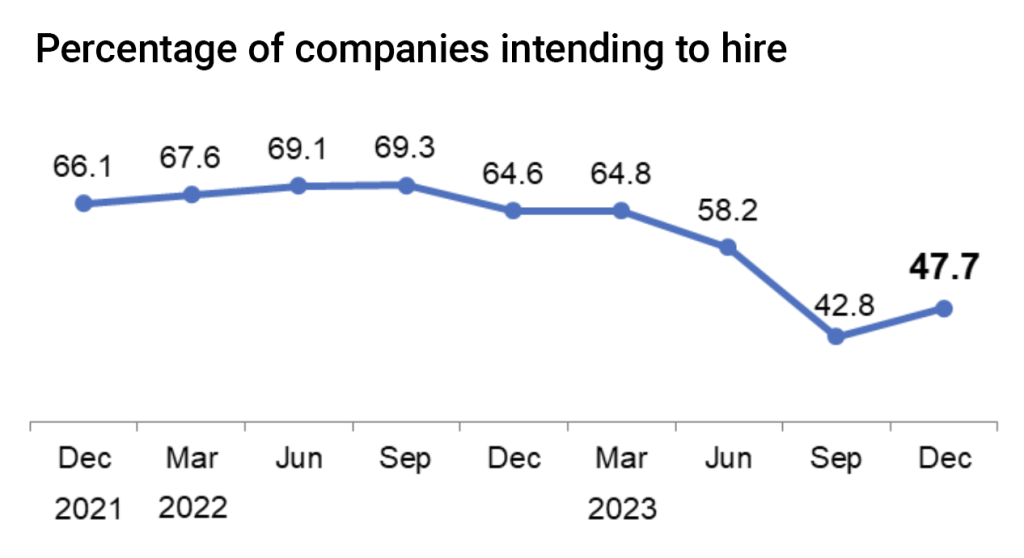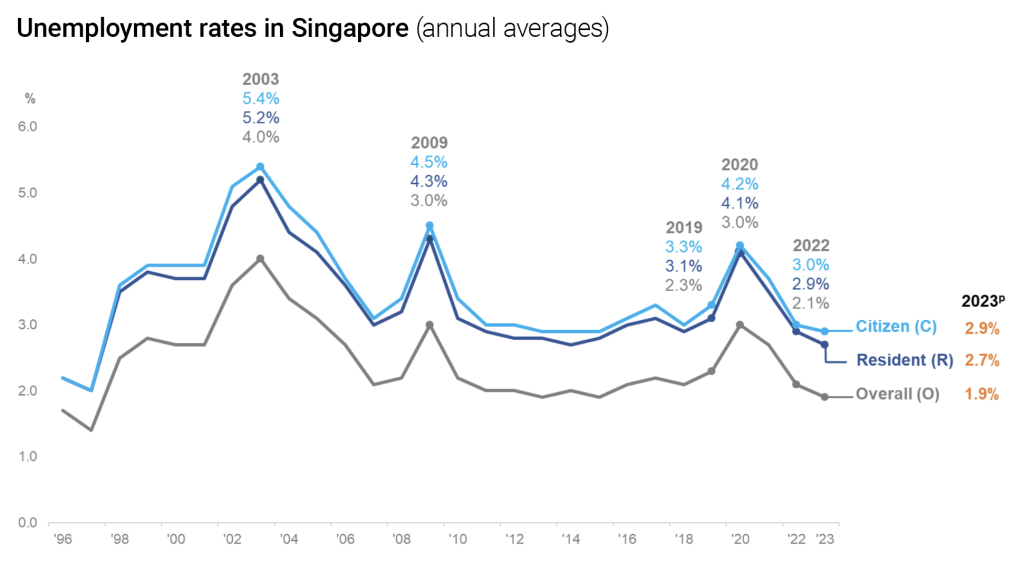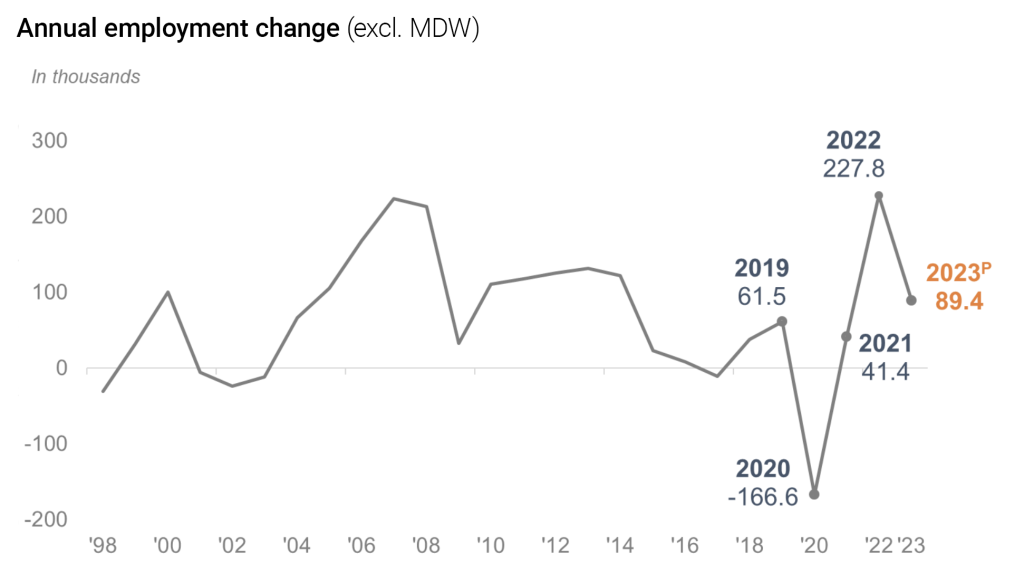According to the latest Labour Market Advance Release for Q4 of 2023, just published by the Ministry of Manpower, nearly 1/3rd, or 32.6 per cent, of Singapore’s employers are planning to raise wages in the coming year.
This is a significant jump from just 18 per cent in the previous quarter and the 2nd highest rate recorded in the past 3 years.
It seems that after a cautious 2023, with some even expecting a recession (which, fortunately, hadn’t materialised) the spirits are up for 2024.
Improving economic performance was certainly recorded in the 2.8 per cent jump in GDP in the final quarter of last year and forecasts for the coming 12 months place growth of the Singaporean economy between 1 and 3 per cent.
Besides paying more, a slightly higher percentage of employers than in September are expressing an intent to hire as well:

It may seem considerably lower than in recent years, but those inflated figures followed the pandemic, with thousands of openings still waiting to be filled. Today, the economy is back to full employment, so the need to hire new staff is considerably diminished.
Still, half of all employers are looking for talent, so you shouldn’t be starved for opportunities.
Lowest unemployment in a decade
Preliminary data shows that unemployment rates dipped in 2023 below pre-pandemic levels and are the lowest since around 2014:

In practice, it means that virtually nobody who seeks employment is out of a job in Singapore.
And it’s hardly a surprise, considering that the overall pandemic drop of 166,600 jobs in 2020 has since been fully recouped, with another ca. 200,000 added on top between 2021 and 2023.

While the net employment change is now expected to slow down somewhat, given the saturation of the labour market, it is still bound to be positive in 2024 given the high number of vacancies, which in September of 2023 still amounted to nearly 80,000.
Meanwhile, Economic Development Board has just reported that Singapore received $12.7 billion in foreign fixed asset investments last year, which are expected to create over 20,000 new jobs once they are completed.
This is good news both for those looking for new opportunities as well as everybody hoping for a raise since increased hiring competition applies even more pressure on employers (who are already complaining about talent crunch) to keep their staff happy, lest they choose to jump ship.
As long as you keep your skills up to date, you shouldn’t be concerned about employment — or competitive pay — in Singapore anytime soon.
























